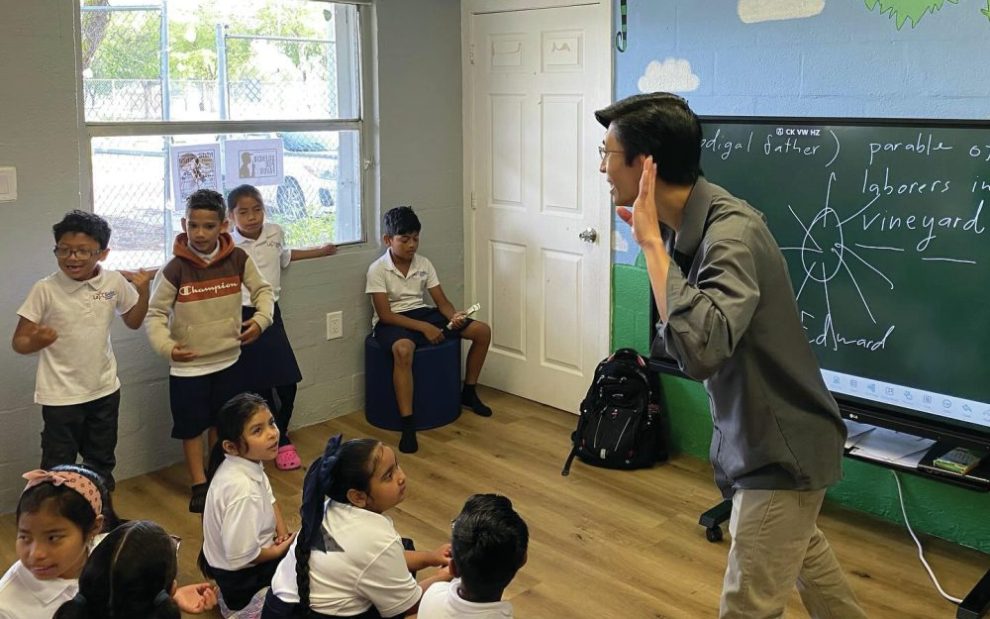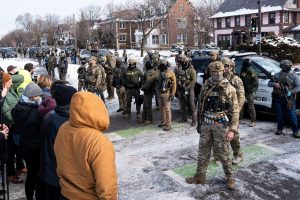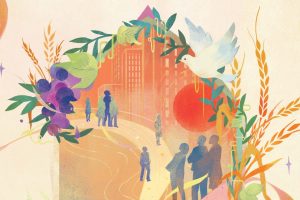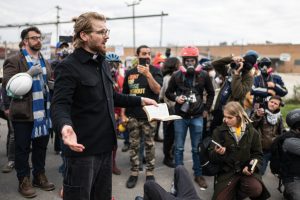In the south Florida city of Homestead, near the Everglades, low-income migrant farmworkers have long labored in area fields. Today, their children face steep barriers to education, especially in a state where anti-immigrant policies are on the rise. But a new kind of Catholic school is quietly rewriting what’s possible for them.
In 2024 the De La Salle Christian Brothers opened a K–4 Catholic school for the children of migrant families. Known as the Little School, the project is rooted in the Lasallian tradition of educating those on the margins. Their message is one of “welcome, hospitality, worth, and equity,” says Mike Scaramuzzo, president of the La Salle Educational Center and the Little School.
The Lasallian Brothers, who started the Little School, are entering their second year of school with 30 students and three teachers, up from 22 students their first year. The students are mostly from Central America, particularly Nicaragua, El Salvador, and Guatemala. Most moved to the United States with their families within the last five years.
“The environment that we’re in is not only anti-immigrant—it’s also anti-low income,” Scaramuzzo says. Yet at the Little School, “there’s no such thing as legal status. Checking papers is not part of being in our community. Being a part of our community is coming with an open heart, and we don’t discriminate.”
Homestead has historically been full of farms where migrant farmworkers came to harvest tomato, corn, and fruit. Today, many of those migrants have stayed in Miami-Dade county working in agriculture, no longer traveling seasonally to find work.
Since the 1990s, the De La Salle Brothers have run an after-school educational program for local migrant children in Homestead at the La Salle Educational Center, where the Little School is now housed. The school is also located near Section 8 housing, where many of their families live. These days, agricultural jobs in the area often mean landscaping or working on tree farms, Scaramuzzo says—part of a shift toward a more stable, though still low-income, local community. “Homestead is a much less transitory community and much more of a stable, low-income community that needs help.”
Before the Little School opened, many parents assumed their children would follow them into the fields. “They were consigned to the fact that their son or daughter would eventually work with them,” Scaramuzzo says. “As the year has gone on, parents are seeing a different future for their children. Their children are smart. We want them to have the same opportunities that every other American child has to succeed.”
The Little School is named after the founder of the Lasallian Brothers, St. Jean Baptiste de La Salle, who started schools for poor boys in France in the late 1600s. He called them “little schools” because they started out with 10 or 15 students, then would grow to become “the premier school in that area, which upset the rank and file in France. He taught in the vernacular, not in Latin,” Scaramuzzo says.
Eventually the rich started sending their kids to his schools, but de La Salle “never lost his mission, which was to create and start schools for poor children,” Scaramuzzo says.
The Homestead community is “poor, migratory, and forgotten,” Scaramuzzo says. In response, the Lasallian Brothers decided to go “back to our roots” and open the Little School. “To us, and even to the archdiocese, this area is a periphery,” he says. Today, the Little School remains the only Catholic school in Homestead.
Scaramuzzo, who was taught by Lasallian Brothers himself and holds a degree in Lasallian leadership, has been leading the school through its second year while fundraising and building community support. When the students first arrived, many were two grade levels behind—and most didn’t speak English.
Now, many are thriving, with some performing above grade level, particularly in math. “Individualized learning is a big thing,” Scaramuzzo says. Instead of being grouped by age, students are taught by level. “It really is a special ministry. It’s extremely fulfilling, but also extremely challenging,” he adds, especially given the broader anti-immigrant political climate.
Over the past year, students have formed a strong sense of community and, as Scaramuzzo puts it, have “grown in knowledge with each other and with God.” The school uses phonics-based reading books that are also designed to help parents learn English alongside their children. “It’s also a form of adult education,” he says. But theology class is the one class each day that isn’t taught exclusively in English. Many of the students pray in Spanish—“that’s how they talk to God,” Scaramuzzo says. “We want to be very respectful of that.”
The challenges the Little School has faced so far have been mostly financial and operational, Scaramuzzo says. While the Archdiocese of Miami supports the project, it hasn’t contributed funding. A large donation from the Lasallian Brothers helped launch the school, which now relies on donors to keep it running. That support has allowed them to offer tuition-free education. Scaramuzzo hopes to build an endowment to sustain that model long-term.
In addition to academics, the Little School provides breakfast, lunch, and a snack each day. For many students, Scaramuzzo says, those are their only meals of the day.
Looking ahead, the Brothers plan to expand the school through middle and high school. They also hope to launch a career and technical education (CTE) program at the high school level, giving students specific job training and connections to employers.
“These farms and agricultural lands are going to be more and more minimal over the next 20 to 30 years—and where is this community going to end up?” Scaramuzzo says, referring to how farmland in Homestead is increasingly being sold to large corporations for real estate development.
In recent years under Governor Ron DeSantis, Florida has become a stronghold for school choice, with more than half of K–12 students now attending a school of their parents’ choosing. Many families have opted out of traditional public schools, which Scaramuzzo says have struggled to meet students’ needs in Homestead.
Because Florida has a “school-choice friendly environment,” Scaramuzzo says, state politicians have been supportive of the Little School. To maintain that support—and protect the students it serves—the school has shifted away from branding itself as a school for migrant children who are not asked about legal status. Instead, it now presents itself more broadly as a school choice option for low-income families. “We’ve had a shift to where we market ourselves as a school for low income and working class families, which is exactly what we are,” Scaramuzzo says.
Just as St. John Baptiste de La Salle taught his students in the vernacular, “it’s our job to meet our students where they are, in their vernacular, and transform their hearts,” Scaramuzzo says. “We are serving those who Christ wants us to serve, which is this community of the forgotten. Everybody is a child of God.”
This article also appears in the October 2025 issue of U.S. Catholic (Vol. 90, No. 10, page 23-25). Click here to subscribe to the magazine.













Add comment